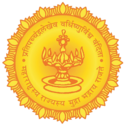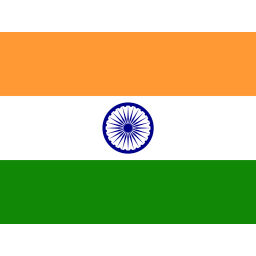Address at the Completion of ten years by the organization Seva Sahayog at Pune Education Society’s Auditorium
Address by Shri Ch Vidyasagar Rao, Governor of Maharashtra at the ‘Dashak Purty’ (Completion of ten years) by the organization Seva Sahayog at Pune Education Society’s Auditorium, Niderb College of Engineering, Off J M Rad, Shivaji Nagar, Pune 411005 at 1000 hrs on Saturday 27th February 2016
Shri Ravi Pandit, Chairman and Group CEO, KPIT Technologies, Smt K S Meenakshi, Managing Director and Global Head of Human Resourecs – Centre of Excellence, Credit Swiss, Shri Hanmantrao Gaikwad, CMD, BVG India, Dr Sanjeevani Kelkar, Founder of Mata Balak Utkarsha Pratishtan, Shri Sanjay Hegde, Chairman, Seva Sahayog Foundation, distinguished invitees, Corporate leaders, service leaders, office-bearers and volunteers of Seva Sahayog, ladies and gentlemen,
Good morning and greetings to you.
I am pleased to be with you all and to share your joy on the occasion of Dashak Poorty or completion of ten years of service by Seva Sahayog.
When a few members of the team of Seva Sahayog met me in Raj Bhavan last month and briefed me about the work of the organization, I agreed to their request to attend this function immediately.
Edmund Burke wrote, and I quote: “The only thing necessary for the triumph of evil, is for good men, to do nothing.” (Unquote)
The Seva Sagayog is an antidote of this observation. It is organization of good people who are keen to do something good for the society around them.
I am told, some of the members of Seva Sahayog are highly placed business leaders who, driven by a sincere urge to serve community, came together and plunged themselves into social service.
It is quite reassuring that the ranks of Seva Sahayog are rising steadily and today it has an army of 13000 volunteers to run its various projects.
During the last ten years, the organization has touched the lives of thousands of underprivileged men and women, and particularly the children from slums and made sincere efforts to help them in many ways.
I was pleased to note that the organization is running 50 Community Learning Centres in slums in Mumbai and Pune, providing school kits to poor students – and I understand, it has already given school kits to more than 60,000 students.
It pleased me immensely to know that Seva Sahayog has an active Ladies Wing whose members provide skill based training to women living in slums.
Three of the initiatives of Seva Sahayog in particular appealed to me: The first was IT enabling of NGOs which involves empowering NGOs and their staff through IT training. The second was the CSR Connect extended by Seva Sahayog to companies and the third was the Seva Internship programme which facilitates youths to volunteer with NGOs.
I congratulate the Seva Sahayog on its Dashak Poorty and convey my appreciation to every single volunteer associated with the service organization.
Ladies and gentlemen,
There is an ancient wisdom. Rivers don’t drink their own water; Trees don’t eat their own fruits and the Sun doesn’t shine for its own pleasure. Living for each other is the rule of Nature.
I think human life is incomplete if there is no aspect of giving to one’s personality. ‘Giving back to society’ is a Samskara and I do feel that we must imbibe this Samskara on every child.
Seva has been regarded as a great virtue in Indian tradition. The importance of Seva has been highlighted by the Guru Granth Sahib, the holiest scripture revered by people, especially by the Sikhs.
A verse in the Guru Granth Sahib says that one who performs selfless Seva without desire for reward will certainly attain liberation.
Perhaps in today’s age, not many people think in terms of liberation or Moksha. Thankfully, many business leaders believe that it makes a sound economic and business sense to give back to society and make people stakeholders in the progress and development of their business or company.
Many business organizations in India have been discharging their social responsibility, even before the mandatory provisions of CSR policy became operational. Pioneer business houses such as the Tatas, the Birlas, the Bajajs and most of the public sector enterprises have been practicing Corporate Social Responsibility right from their inception.
Today the perception of business organizations towards CSR has changed remarkably. Many companies see Corporate Social Responsibility as an important business strategy for creating and protecting goodwill and reputation in society and among their stakeholders.
By a rough estimate, the new CSR guidelines are expected to result in creation of a corpus of anywhere from Rs. 16000 to 25000 crore annually, which can be used for achieving various social goals identified by the government.
So the availability of CSR funds is no longer an issue, What we need is a partnership between the Government, Corporates and NGOs like the Seva Sahayog Foundation to identify projects, identify funding gaps and implement CSR programmes strategically and effectively in a time bound manner.
Last month I had organized a meeting of Corporate leaders in Raj Bhavan to evolve synergy between the government, private sector and the public sector organizations to ensure effective social outcomes of some of the welfare programmes of the government through participation and support of Corporates.
The Government runs a large number of welfare programmes for the benefit of the poor and needy sections of society. Quite often these projects get struck at the district level due to non availability of small funds. Organizations like Seva Sahayog can help to bridge these funding gaps.
Secondly, many Corporate organisations are looking for partners to implement their CSR programmes. Seva Sahayog Foundation should help such Corporates in finding agencies for implementation of their CSR programmes and in training their staff for such work.
I have one expectation from Seva Sahayog. The organization must help the government and Corporates to measure and monitor the outcomes and effectiveness of CSR programmes run by business organizations.
India is youngest nation in the world in terms of its demographic profile. By 2021, the proportion of working age population is expected to be 64 percent. We have the largest young population in the world. By 2020, the average age of an Indian will be 29 years, 8 years younger than an American or a Chinese. The youths are the power of the nation.
Time has come for us to go beyond; from CSR to ISR, that is, Individual Social Responsibility. It is reassuring that Young India is keen to discharge Individual Social Responsibility and contribute to the social agenda of the country. Channelizing the youth power through CSR and ISR activities will help us improve the standard of living of our people and build a better future.
We also need specialized professionals to run CSR programmes. In my capacity as Chancellor of Universities, I wish to call upon universities in Maharashtra to design and develop programmes to train professionals for the implementation of CSR polices by business organizations and NGOs.
The ambit of the Swachch Bharat Abhiyan is very large. The Hon’ble Prime Minister had particularly stressed the need for creating toilets in every school and ending open air defecation in India by 2019.
In this connection, I am pleased to note that Seva Sahayog has taken up an innovative initiative – Nirmal Wari wherein it provides mobile toilets for people during the annual Pandharpur Wari and encourages Warkaris to use these toilets. I extend my wholehearted support to Seva Sahayog in the implementation of the Nirmal Wari Abhiyan. I am sure, the Hon’ble Prime Minister will be very happy to know about this initiative.
This year many parts of Marathwada, Western and North Maharashtra are facing acute shortage of water. The Government has taken up the Jalayukta Shivar Yojana to improve storage levels. I do feel that volunteers of Seva Sahayog should form various small groups. Each of such groups should adopt villages and implement water conservation and rainwater harvesting programmes there with the help of citizens and Corporates. A combination of CSR and ISR can make our State, Sujalam and Suphalam.
Money is not enough to drive a social change. We need the spirit of ‘Seva’ and the ‘Sahayog’ of all to transform India.
With these words, I congratulate the Seva Sahayog on its 10th anniversary and wish you all Godspeed in your future endeavours.
Jai Hind ! Jai Maharashtra !!



